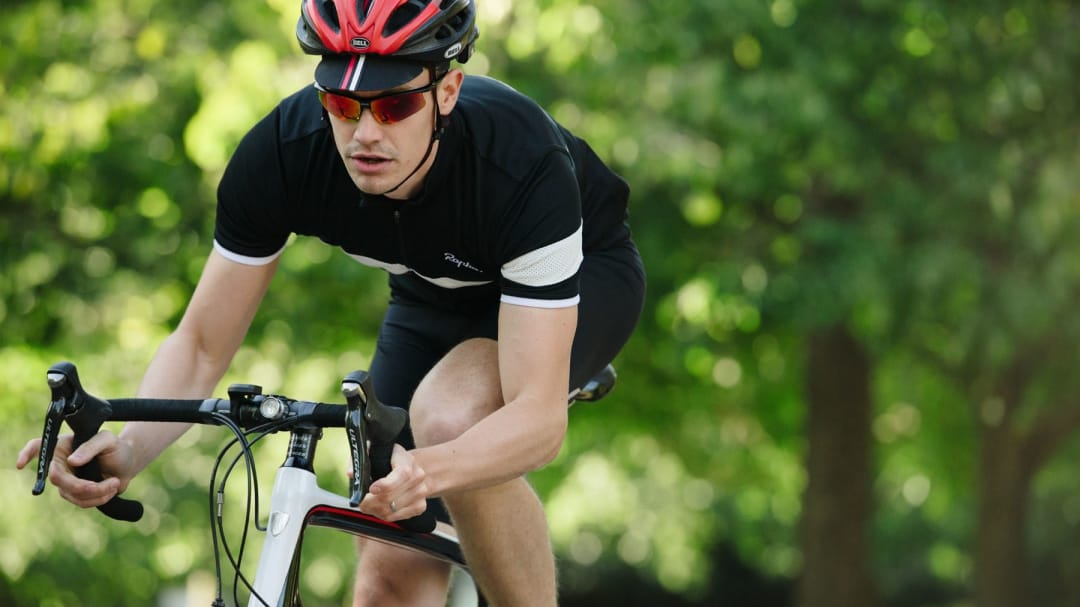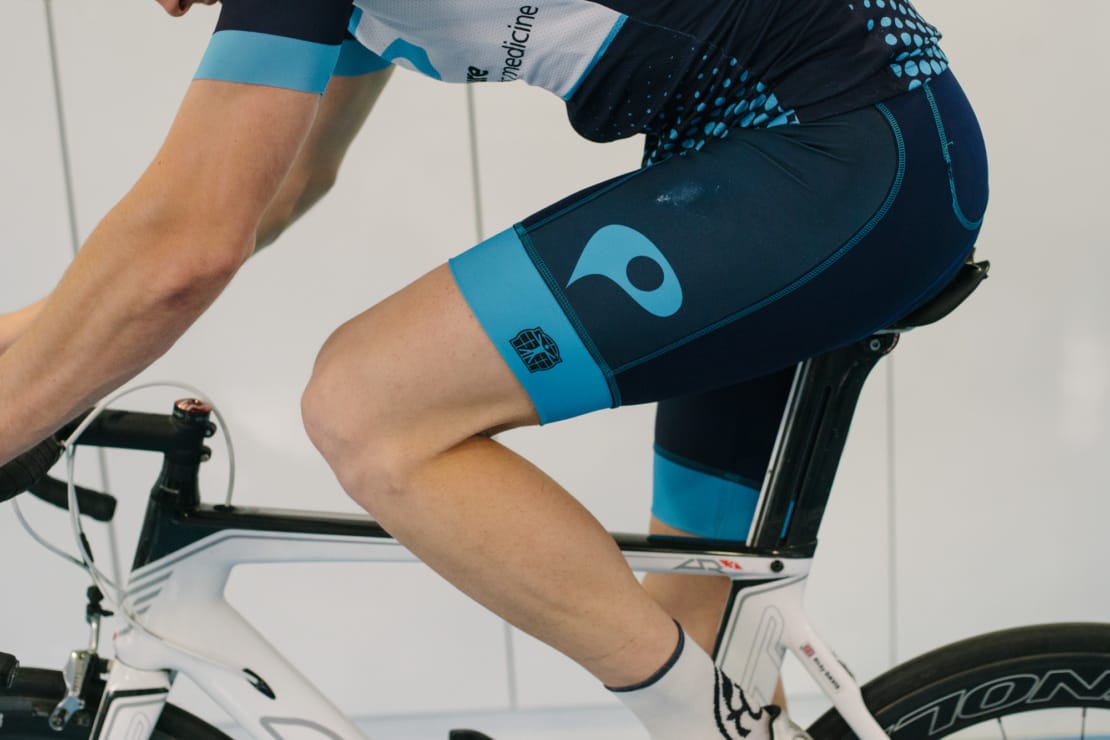How To Train Like a Professional Cyclist

Sam Birch
Physiotherapist
- 5 May, 2021
- Cycling
- 3 min read
How To Train like a Professional Cyclist
Whether you cycle on the weekend for fun, use your bike to commute to work or take part in competitive cycling events – like RideLondon, for example – you’ll know that to enjoy the ride, you need to be fit and able to ride your bike, meaning that you need to be injury and pain-free.
In this blog, we cover the common injury types, things to keep an eye on and ultimately, how to look after yourself and your bike to get the most out of both on ride days.
Cycling related injuries can usually be separated into two categories:
1. Overuse injuries
These have a more gradual onset and often a result of the repetitive strain put through different parts of the body.
Overuse injuries account for the large percentage of injuries presented to our clinicians at Pure Sports Medicine; interestingly these are almost always due to either an incorrect bike set-up and improper training techniques.
2. Traumatic injuries
These usually due to a crash or a fall, where the contributing factor of the injury was a clear event involving a collision of some kind between a person’s body and the ground or other object.
With these injuries the cause is easier to determine, however the recovery journey can be significantly longer, depending on the injury.

Wherever you are within your cycling career, and whether or not that actively involves training of any kind, it is important to know the risks and what you can do to avoid these common injury types.
It’s also important to remember that these types of injury do not only affect the elite athletes competing in the Grand Tours, but even amateur and non-professional cyclists too.
So, what can be done to minimise the occurrence of these injuries?
Understand how much load you’re putting on your body
Sudden spikes in training volume, intensity, distance or frequency can lead to tissues being stressed beyond their capabilities.
This normally results in tendons, ligaments or muscles getting stressed, fatigued, inflamed and sore.
Using apps such as Strava can help monitor training stress and performance, indicating whether you’re consistently pushing your body into the ‘red’ or whether you have a good training/recovery balance.

Make sure your bike set up is right for you
We cannot recommend enough how useful a Bike Fit can be in helping you get the most out of your bike.
Professional Bike Fitters assess your current bike setup and make changes to the handle bars, saddle, cleat position and more, to ensure the set up is correct for your body, cycling technique and ultimately what it is you’re trying to achieve with your bike.
A clinical bike fit assessment also includes an assessment of your current ailments while cycling so you can identify any aches or niggles that are being caused by the bike and work on those areas to increase your strength and resilience to avoid injuries.
Whether it be more comfort or improved performance and efficiency, you’ll be surprised at how much more comfortable and faster you become by having your bike setup perfectly for you.

Get regular Soft Tissue Therapy
Soft tissue therapy is a key part of a cyclist’s recovery.
Professionals get regular Soft Tissue Massage Therapy from their Soigneurs after each day’s racing to help with the next day’s effort.
It maintains optimal flexibility, helps to break down scar tissue, and improves circulation.
Soft tissue treatment during a period of high training load or a lead up to an event has been shown to improve recovery and performance by significant amounts, so including this type of treatment within your week or training plan can make a considerable difference in how well you perform on your bike.

If you’ve caught the cycling bug and are looking to improve performance, comfort, and recovery throughout this year, then we can help.
Our overall goal is to help you enjoy cycling to the fullest while staying injury-free.

Advice
Over the last 20+ years our experts have helped more than 100,000 patients, but we don’t stop there. We also like to share our knowledge and insight to help people lead healthier lives, and here you will find our extensive library of advice on a variety of topics to help you do the same.
OUR ADVICE HUBS See all Advice Hubs
